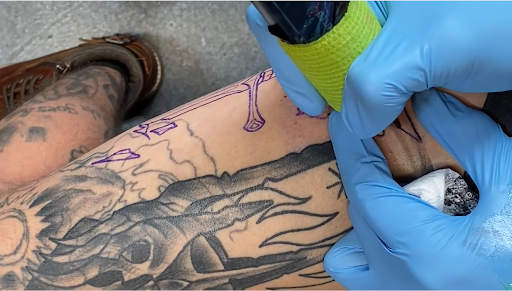Tattooing at Home vs. Studio: What You Need to Know

The popularity of tattooing has grown tremendously over the past decade, with more people than ever interested in learning the craft. Some decide to start tattooing at home, while others prefer the structure and professionalism of a tattoo studio. Both settings have their unique benefits and challenges, and if you are considering getting into tattooing, it’s important to weigh your options carefully. In this article, we’ll break down the differences between tattooing at home and in a studio, covering factors like equipment, learning curve, safety, and customer experience.
Tattooing at Home: Pros and Cons
For beginners, the idea of practicing at home can feel appealing. It’s private, convenient, and far less intimidating than walking into a professional shop on your first day with a machine in hand. Home practice allows you to experiment, get familiar with tools, and make mistakes without the pressure of clients watching.
One of the biggest advantages is cost. Renting a studio chair or joining an established tattoo shop can be expensive. At home, you can invest in a beginner-friendly setup, such as a tattoo pen, synthetic practice skins, and a few inks, and start practicing on your own terms. A tattoo pen is particularly useful because it’s lightweight, easy to control, and often less intimidating than traditional coil machines, making it ideal for learners.
However, tattooing at home has its limitations. Professional-level sterilization is hard to achieve outside of a shop. Without proper hygiene protocols, there’s a higher risk of contamination and infection. In addition, practicing without guidance can lead to developing bad habits that are difficult to correct later. Finally, most clients may not feel comfortable being tattooed in a home setting due to safety concerns.
Tattooing in a Studio: Pros and Cons
Tattoo studios remain the gold standard for anyone serious about tattooing as a career. A studio environment offers professionalism, mentorship, and an established client base. Working alongside experienced artists allows you to refine your skills, learn proper sterilization techniques, and gain valuable insights into client communication and design execution.
Studios also give clients peace of mind. The environment is more hygienic, the equipment is better regulated, and there’s a sense of professionalism that home setups often lack. For artists, the opportunity to build a portfolio with real clients is invaluable.
The main downside? Cost and commitment. Joining a studio often means working as an apprentice, where earnings might be limited in the early stages. You’ll also need to invest in higher-quality tools from the beginning. This is where equipment like a wireless tattoo machine kit becomes an asset. Wireless kits are increasingly popular among professionals because they remove the hassle of cords and power supplies, giving the artist more freedom and flexibility during sessions. They also provide consistent power output, which is crucial when working on paying clients.
Equipment Differences Between Home and Studio Tattooing
The type of equipment you use can greatly influence your learning experience and results. At home, a basic setup might be enough to help you get started. Tools like a tattoo pen make it easier for beginners to focus on line control and shading without getting overwhelmed. They also mimic the feel of professional machines, making the transition to studio work smoother.
In a studio, however, professional-grade gear is expected. A wireless tattoo machine kit is an excellent example of how technology has improved tattooing in recent years. By eliminating cords, artists can move around clients with ease, reduce clutter in their workspace, and maintain a steady workflow. This type of kit usually includes multiple power options, long-lasting batteries, and a selection of cartridges, making it a versatile choice for professionals.
Which Path is Right for You?
The decision between tattooing at home and in a studio depends on your goals. If you are experimenting and just beginning your journey, practicing at home with tools like a tattoo pen on fake skin can help you gain confidence before moving to real clients. But if you’re serious about becoming a professional tattoo artist, working in a studio is essential for proper training, hygiene, and career growth.
It’s worth noting that many successful tattoo artists started their journey at home but eventually transitioned into a studio. The key is to view home practice as a stepping stone, not the final destination.
Final Thoughts
Tattooing is both an art and a craft that requires discipline, the right tools, and a professional mindset. Practicing at home can help you build confidence, but the studio environment provides the structure and standards needed to thrive as a professional. Whether you’re experimenting with a tattoo pen in your own space or investing in a wireless tattoo machine kit to use in a studio, the most important thing is to stay committed to learning and improving.
Tattooing is more than just creating art on skin—it’s about trust, responsibility, and passion. Choosing the right environment for your journey will make all the difference in your growth as an artist.




